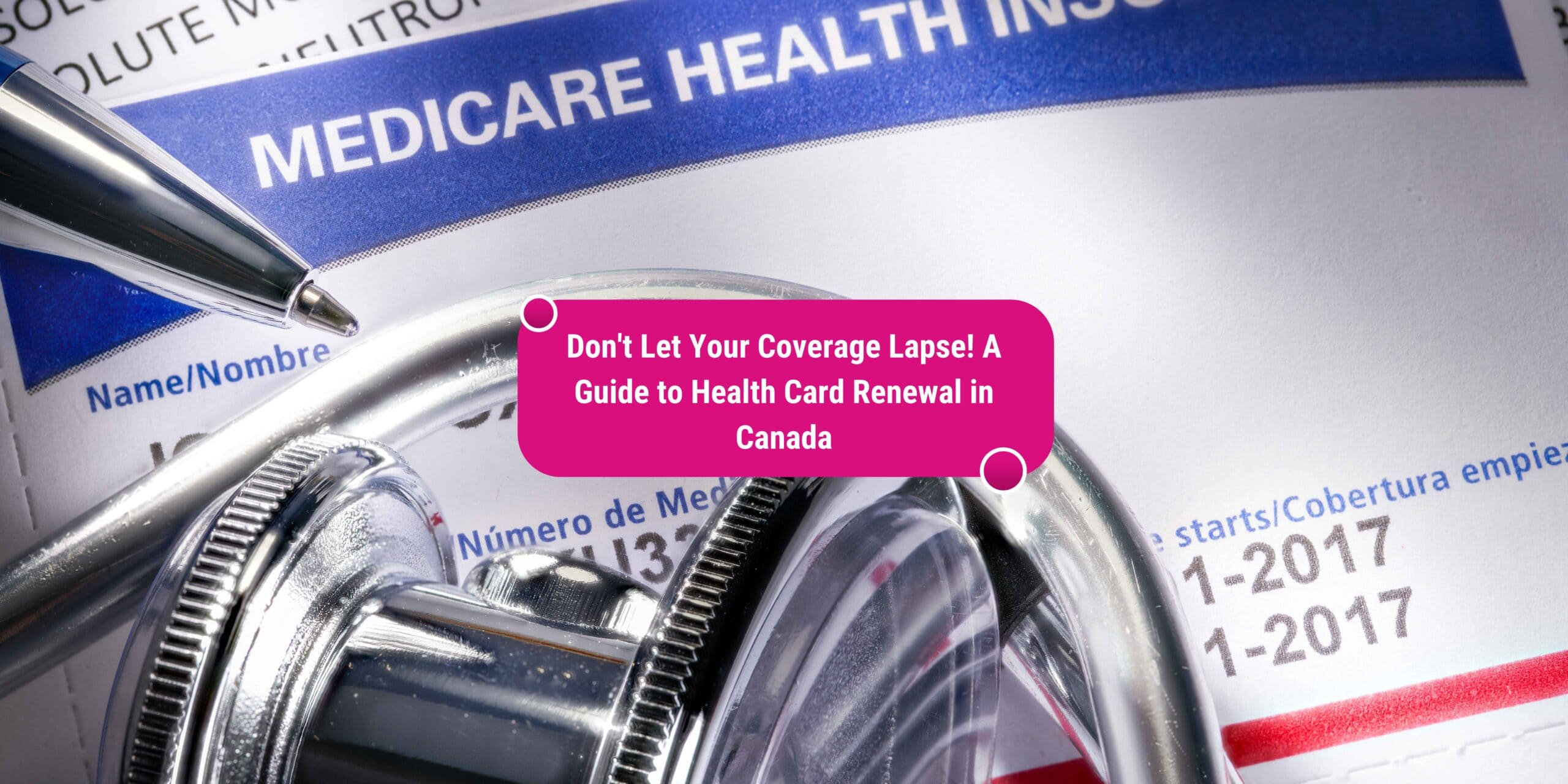Each province and territory in Canada is responsible to determine how health insurance works in their area. But all of these programs have certain regulations that apply no matter where you live in Canada. This guide summarizes these general regulations. That way, wherever you are in Canada, the material in this guide should give you a sense of some of the basic rules that apply in all areas. To be sure, you should also check the rules that are specific to your province or territory. Also, it is always a good idea to call or visit your local health insurance office for more information. They are there to help and want to hear from you.
Canadians know that our health insurance system is a source of pride and has many strengths. But without a good understanding of their rights and responsibilities, and a little help from the system, people can lose their coverage and not even realize it until they get sick. And when you need to get medical care, that’s probably the last thing you need to discover.
Importance of Health Card Renewal
Ontario’s Sign in and Renew process is now operational at 14 different locations across the province. All Ontario residents who only require a photo renewal, whether due to the current photo being five or 10 years old, can complete their request in just two easy steps. This replaces the need for an (often lengthy) line-up that occasionally lasted about an hour, and takes only about five or 10 minutes to complete. This should bring the card’s condition and location up to date with a happy and healthy citizen. Residents can compare snapshots from their previous passport photo and their soon-to-be updated health card photo to note differences in physical and physical appearance. These changes could be due to aging or to emergencies differing such as head injuries, and if important details such as cataracts and retinal problems are photographed, photo renewals provide a confidence-building process.
Every Canadian resident is eligible to apply for provincial health plan coverage, and as a result, healthcare is not often on the list of daily concerns in Canada because of this. Unfortunately, this leads to many people overlooking to keep their coverage up to date. Health card renewals typically take place every five years, following an application process. It does not take long in Canadian culture to accumulate a variety of important documents in card form. It is simply not a huge transition change to suddenly have health plans mirrored in cards. Unfortunately, five years is plenty of time for a card to get lost. The card owner may forget the date available for renewal during this time. Regardless of renewal time, it is more troublesome when card loss is added to the equation. The applicant needing replacement coverage is now in a hospital room due to an accident, and the card is not in their wallet with the other important cards as it should be. It could be somewhere else or it could have a new owner taking advantage of the photo identification properties of the card. What happens when most needs health care because we are not observing proper renewal timeline regulations?
Ensuring Continuous Healthcare Coverage
Once your coverage begins, it will be consistent as long as you continue to meet the eligibility requirements. Re-registering or updating your healthcare coverage normally refers to a situation when you need to update your information but do not face a coverage disruption. Your coverage is continuous. When you are required to renew, updating healthcare coverage more accurately describes re-registering. Although the express reproductive cycle (or when you are pregnant) and your newcomer used in another case, when a resident needs to apply to renew their coverage, we use the term renew. Avoid using the word renewal to process the word renew, as this may cause confusion. In Ontario, common reasons for renewing are the expiration of a healthcare card or after a series of temporary stickers which need to be added to an existing card.
In Ontario, residents are required to renew their Ontario Health Insurance Plan (OHIP) cards every three years. The province will send you an application for how to renew OHIP card prior to the expiry of your OHIP card.
Keeping your healthcare card current is vital to maintaining your healthcare coverage. The expenses of treatment, prescription drugs, ambulance trips, and hospital stays can be significant. Ensure you are covered when the need arises. Do everything you can to avoid gaps in your healthcare coverage.
Avoiding Penalties and Delays
You are required by law to keep your health card current after you turn age 16. This means you have to renew your card, assuming you want to keep your OHIP coverage, or get a new one, either when your old one expires or when Queen’s Park tells you to renew it after having it for 8 years. Starting around two months in advance of the expiry date, your spouse, parent, or guardian should get a reminder letter in the mail about the need to renew, but for a number of reasons, this is not always the case. This article will help explain some of the reasons why you might not get a reminder or a renewed card in the mail, what you should do about it, and how to avoid being unlucky in the first place!
Remember these key messages: Your health card is renewed every 8 years, but first, you need to start receiving reminder letters a few months in advance. Don’t let your coverage end. Keep your address up-to-date with OHIP. You or a family member might still have health coverage even if you don’t have a valid OHIP qualifying health coverage. How do penalties work in other provinces?
Understanding the Health Card Renewal Process
No, and meant as what we consider good news, no action generally required! However, not just no effort required, generally renewals are automatic. Provincial renewal systems do have the ability and do activate from the regular validity checks. Actually, you just have to not move, change names or numbers and subject you to the bare minimum renewals. Usually, however, it isn’t quite as bad as that. Most provinces offer some fairly simple steps toward health card renewal. We’ll describe those here for various change situations in the provinces and territories. First we want to make sure you go to the correct issuing authority for any renewals and replacements you may ever need to make.
Once you understand the health card renewal process, you will be able to plan accordingly and avoid the most common stumbling blocks in an otherwise fairly straightforward process. Renewals don’t require you to produce the entering Health Card and are much less formal affairs than the initial card application. The general rule is: keep your address updated and the renewals are automatic. The specific requirements can vary, however. As they do, we’ve uncovered changes in the process in our ten provinces and three territories.
Eligibility Criteria
International Students: Persons with Study Permits issued by Citizenship and Immigration Canada are eligible to apply for coverage while they study. The Study permit period of validity must be at least six months beyond the next.
Other Eligible Groups: Persons with Permanent Resident status including dependents who are sponsored by family members already in Canada (parents, children, spouses, etc.) fall into this category. As well, foreigners who work under the “live-in caregiver plan” and dependents of non-status persons who are Canadian citizens or Permanent Residents. (These persons must still apply for coverage.)
Permanent Resident: This includes persons who have been granted Landed Immigrant or Permanent Resident status. There is a slight wrinkle in the provision of proof to establish and meet this status, as there is a six-week to six-month waiting period for notice to appear for the new Permanent Resident Card, which is only received after entering Canada. Until the appointment to receive the card, the previously received immigration document must be submitted as proof of Canadian citizenship.
Canadian citizen: This is the easiest criterion to meet. With proof of Canadian citizenship (Canadian birth certificate, certificate of Canadian citizenship, immigration record) and one piece of additional identification, such guidelines as who is entitled to coverage are rarely doubted.
There are 4 basic eligibility criteria for health coverage in BC. These are:
Required Documents
– Any documents from federal, provincial, or territorial government offering the most recent sixth month period of residency.
– A document confirming the client’s individual registration under the federal Immigration and Refugee Protection Act or a document issued by the Immigration, Refugees and Citizenship Canada indicating the client’s status under Canadian Immigration and Refugee Protection Regulations.
– An Immigration, Refugees and Citizenship Canada or Citizenship and Immigration Canada document confirming your most recent entry into Canada, showing the date of entry and issue date.
– Birth certificate or Permanent Resident Card or another document issued by Citizenship and Immigration Canada/Immigration, Refugees and Citizenship Canada or another federal, provincial or territorial government that provides the personal reference number that allows us to verify the client’s status under the Health Protection Branch.
You must provide the required documents when applying to renew your health card. The Canadian Health Care website has a helpful page that will direct you to the correct pages for the province or territory you are living in. The information requested will typically include the items below.
Application Methods
Applicants for the Quebec health card must be at least eight years of age and have the same place of birth and expiry date as the health card. The new health card will be sent in by mail and will be activated three days after the card is issued. Residents of the City of Ottawa are able to apply for the new health card remotely in the same manner as an Alberta resident. Residents living in Valleyview, New Larder Lake, Remi Lake including Latchford Bay are able to use the Application to Register for Ontario Health Plan Coverage form, found by contacting ServiceOntario and requesting a form be mailed to them. Residents interested in obtaining an online application form must live in Ontario outside of the City of Ottawa, Valleyview, New Larder Lake, including Remi Lake and Latchford Bay. The current health card and the last three digits from the top right corner are required to be entered in order to access this service.
In Canada, individuals can apply for the new health card in three ways, which are only available in three provinces. In Alberta and portions of Ontario (Valleyview, New Larder Lake including Remi Lake and Latchford Bay, and all residents of the City of Ottawa), the remote application is available by sending in copies of the required documents. In New Brunswick, residents can apply online without copies of the required documents or send in printed copies by mail. Lastly, in Quebec, the new health card can be applied for remotely by sending in copies of the required documents in certain circumstances.
Tips for Smooth Health Card Renewal
If a person’s previous health card expired more than five years ago, they are likely to have to apply for a new card instead of renewing their existing health card. Don’t worry, that’s not a mistake, but due to our healthcare system’s record-keeping system and how easily it can be overloaded with information that no longer meets present needs. While recent annual updates to health cards focus on the needs of cardholders at the time they are issued, the longer gaps between renewals that will happen over a cardholder’s life means that some information will no longer be helpful.
Nearly all renewals happen automatically, and most Ontarians’ health cards will be updated with new expiration dates, a process that is to the benefit of all cardholders. Plus, between the hectic stage of acquiring multiple health cards and wondering about the implications of an expired card, these tips should ease the process for those with upcoming birthdays.
Most Canadians will need to take action to renew their health cards after years of updates to how government-issued identification is handled in Canada. While renewing health cards has gained less media attention than new drivers’ licences, the health card process is synonymous with streamlined services for our changing society’s healthcare needs.
Setting Reminders
The most simple way to remember is to note the date in your main daytimer or planner. Do not just note it for the provinces you currently live in, but if you lived in other provinces in the past which had different health care renewal dates make a note of those as well. If your daytimer is small and time-sensitive, fold over the relevant page to make it easier to locate. If you use the calendar in your cell phone as a daytimer, use an alert or reminder function of that instead. Once I reach the due date for a renewal I whited it out after I did the update, since my cell phone could hold only one year’s worth of data at a time.
I strongly suggest that you set up some sort of reminder to let you know ahead of when your coverage will expire. You do not want to deal with the hassle of temporarily being without coverage, nor do you want to have to go to a walk-in clinic to get a refill on your prescriptions. Plus, not having your photo health card can be an administrative hassle. The folks at Service Ontario are doing this because no one can keep the health card expiration date straight. Do not kid yourself that you can if they cannot, considering their job indirectly depends on it.
Keeping Personal Information Updated

It is essential that you contact your province as soon as possible with the updated legal name, current Canadian address, your status in Canada, and one or more of the other essential details of changes. Official name or address changes need to be registered with your province that is processing your health card renewal. Failure to update such changes can lead your change to be refused, or you could be denied for any government services that require these updated identity prerequisites. It is also an important part of Canada’s immigration law to have updated documents associated with the Canadian government if a temporary resident permit or any other immigration form has been submitted for consideration.
At the time of health card renewal, the majority of provinces will get in touch with update information for you. Educational institutions, vital statistics agencies, and tax assessment offices help get data regarding demographic information such as full names, date of birth, citizenship, and residential addresses for you. In some cases, renewing your health card can be done at the same time as a driver’s license, which is generally done sooner. In cases where this provision is not observed, or for different reasons, your province may contact you with a renewal slip in the mail soon before your health card is due to lapse. They send a separate form, a general application form in the mail, or an organization can contact you.
In conclusion, the loss of coverage that comes with a health card renewal is a troubling issue faced by disadvantaged people in Canada, with likely negative implications for individuals’ health. For this reason, provincial governments should take action to minimize the likelihood of lapses in coverage. The restoration of the automatic enrollment that used to occur upon renewal is not the only possible remedy, nor is it necessarily workable in a context where information technology has greatly increased the possibilities for gaining access to government benefits, but where governments are preoccupied with controlling public spending. The solution may be to require that individuals present themselves for renewal before the end of the three-month period that the card remains in force, so that more cardholders would find themselves able to provide the needed information. In addition, a polite reminder could certainly be helpful, and at this particular moment, a little judicious funding may also be in order. As for individual cardholders, meanwhile, this paper offers a last-minute warning about the expiration of their health cards. Those who stand to lose so much when they become uncovered should be anxious to avoid having their coverage lapse.



